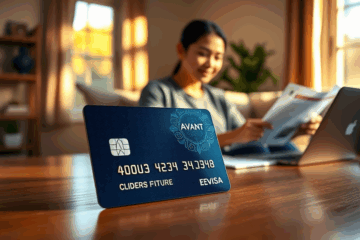Essential Tips for Using Credit Cards Responsibly
Credit Card usage is a powerful financial tool that can either help or hinder your financial health.
In this article, we will explore the essential practices for using credit cards responsibly.
By following these guidelines, you can avoid common pitfalls, improve your credit score, and manage your finances effectively.
Whether you’re a seasoned credit card user or just starting out, understanding these key concepts is vital for ensuring a successful financial future.
Why Responsible Credit Card Usage Matters
Responsible credit card usage is foundational for achieving long-term financial wellness It allows individuals to enjoy the benefits of interest-free living while safeguarding their financial future Credit cards, when managed wisely, not only provide convenience but also aid in building a strong financial reputation The disciplined use of credit cards facilitates credit-score protection which is crucial for accessing favorable loan conditions and interest rates Responsible use entails strategies that ensure financial stability and prevent debt accumulation Incorporating these practices will enhance your financial health:
- Pay in full
- Budget smartly
- Understand your card terms
- Keep credit utilization low
- Automate payments
These core principles serve as guidelines towards leveraging credit cards as effective financial tools while avoiding the pitfalls of irresponsible spending You can find more insightful strategies on the Capital One resource page understanding the impact of these practices on maintaining optimal financial health is paramount for everyone seeking stable economic footing
Practical Habits for Smart Card Management
Credit cards often get a bad reputation, seen merely as a source of debt and financial stress.
However, with the right daily habits, they can be transformed into powerful financial tools that enhance your purchasing power and build your credit history.
By implementing simple practices like timely payments and mindful spending, you can turn your credit card into an asset that supports your financial goals.
Pay Off Your Balance in Full Each Month
Paying off your credit card balance in full each month brings significant advantages to managing your finances effectively.
When you pay the statement balance in full, you experience the benefit of zero interest charges, which prevents a debt snowball effect where balances grow exponentially due to accumulated interest.
This practice also strengthens your credit history by maintaining a positive payment record.
Consider setting calendar alerts or aligning your due date with payday as quick tips to ensure timely payments.
For more insights, visit CNBC on Paying Credit Card in Full.
Limit Your Card to Essential Purchases
Using credit cards responsibly involves paying off your balance in full each month to avoid interest fees, which can accumulate quickly, leading to unwanted debt.
Impulsive purchasing on luxury dining or the latest gadgets without a budget can strain your finances.
Instead, opting to use your credit card for budgeted expenditures such as groceries, utilities, or advance-booked travel helps maintain financial stability.
By focusing on these necessities, you can preserve your financial health, avoiding the temptation of unplanned purchases.
Establishing this discipline supports creditworthiness and ensures you keep your credit utilization below recommended levels.
Visit Experian’s guide for more tips on responsible credit card usage.
Make Payments on Time
Consistently making on-time payments is essential to maintaining a healthy credit profile; punctuality protects your credit score, enabling you to sidestep late fees that accrue if you miss due dates.
Lateness can substantially damage your credit score, signaling to lenders that you might be unreliable.
This mistrust can limit future borrowing options.
Utilize scheduling techniques like setting reminders or syncing due dates with paycheck schedules to stay on track.
Consider using auto-pay options, which can prevent these costly oversights.
Visit Experian’s guide on avoiding late payments for more strategies.
Create and Follow a Card Spending Budget
Designing a card-specific budget involves establishing spending caps for both discretionary and fixed expenses, ensuring you maintain financial control and avoid debt.
Begin by assessing your monthly income and necessary expenses, allocating relevant portions for essentials such as rent, groceries, and utilities.
For discretionary spending, set a limit and use tracking apps to monitor your purchases in real-time.
To enforce discipline, conduct weekly reviews to assess your spending.
This frequent monitoring helps in identifying overspending patterns and adjusting your habits accordingly.
Consider platforms like Chase Bank’s guides for effective budgeting strategies, ensuring your credit usage remains within your established boundaries.
Understand Key Card Terms and Fees
Knowledge is your best protection
against credit card pitfalls.
Understanding key terms such as APR, the interest rate charged annually, and the grace period, during which you can pay your balance without incurring interest, empowers you.
Be wary of the penalty APR, which significantly raises rates after a late payment.
Many fees are avoidable.
Dive deep into your card agreement to stay informed.
You can explore more about this in articles like the one from Alliant Credit Union to better understand terms and conditions.
| Fee | How to Avoid |
|---|---|
| Annual fee | Choose a no-fee card |
| Interest charges | Pay balance in full monthly |
| Late payment fee | Set up autopay |
| Foreign transaction fee | Use cards with no foreign fees |
Keep Credit Utilization Under 30 Percent
Your credit utilization ratio
significantly impacts your credit score as it indicates how much of your available credit you are using.
Staying below 30 percent is crucial because utilizing too much of your credit can signal to lenders that you might be a financial risk.
A lower ratio often helps improve your score, making it easier to secure credit with favorable terms.
To maintain a low utilization rate, consider these tactics:
- Pay off purchases swiftly using methods as detailed on Experian’s guide
- Request higher credit limits to safely lower your ratio
- Distribute spending across multiple cards
Activate Autopay for Peace of Mind
Setting up autopay for your credit card bills offers substantial benefits, ensuring payments are made on time and eliminating the worry of incurring late fees.
This process helps in maintaining a healthy credit score by preventing missed payments that could damage your credit history.
Additionally, the reliability of autopay provides peace of mind, allowing you to focus on other financial priorities.
While the convenience is undeniable, it is important to periodically verify the amounts being deducted and review statements for any discrepancies.
This proactive approach, as detailed on PNC Bank’s guide on autopay, ensures that you can enjoy the full benefits of autopay without unexpected surprises.
Credit Card management is crucial for maintaining a healthy financial outlook.
By implementing these responsible practices, you can enhance your creditworthiness and avoid unnecessary debt, paving the way for a more secure financial future.



0 Comments